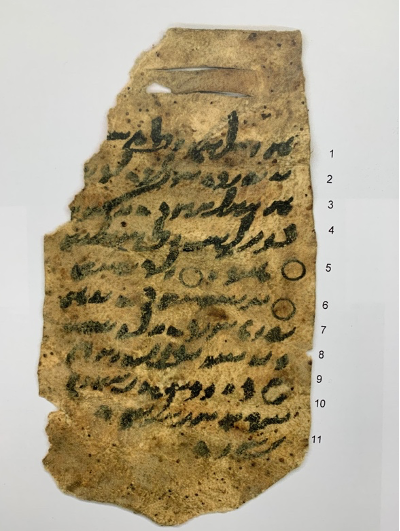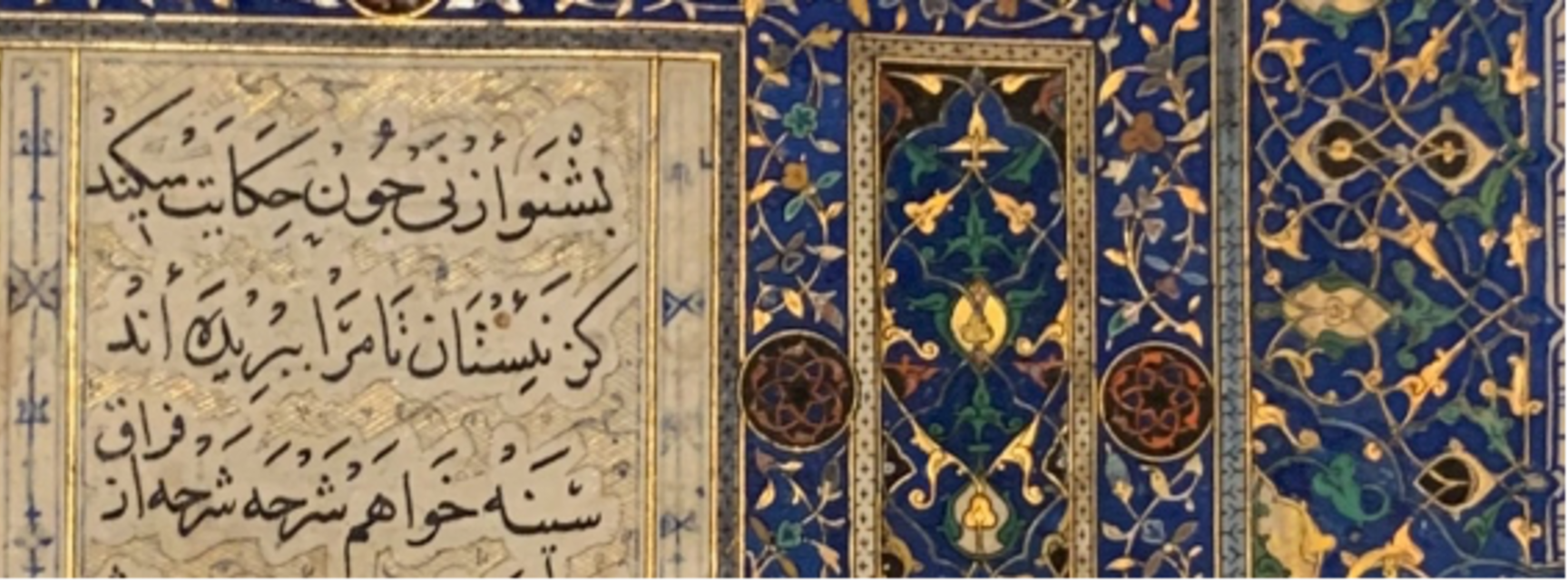Islamicate Manuscripts & Texts Colloquium (IMaT) 2021: Letters
Manuscripts & Texts Reading Colloquium(IMaT) 2021: Letters
The Faculty of Oriental Studies, Oxford
Tuesdays, 12 October to 30 November 2021

Khalili 129, a Middle Persian letter from 6th- or 7th-century Afghanistan
Click here to register (please scroll down to see all the sessions).
Convenor: Dr Arezou Azad, Programme Director, Invisible East, Oriental Institute; with Dr Tommy Benfey and Dr Zhan Zhang, ERC-Go.Local Post-doctoral Researchers.
Introduction:
This iteration of the Islamicate Manuscripts and Texts (IMaT) colloquium will focus on literary and documentary letters from the Islamicate world and adjacent areas in space and time, written in various languages including Arabic, New Persian, Middle Persian, and Sogdian. Issues we will be exploring include: the relationship between literary and documentary/private letters; the transmission of epistolary formulae and topoi over time, and between political units, languages, and religious communities; the various ways letters can be useful as sources for historians.
Meetings:
Weekly online sessions every Tuesday of Michaelmas Term 2021 of up to 90 minutes, each on a new document or set of documents from one part of the Islamicate world. These will typically run from 3 to 4:30 PM, UK time, although we will meet two hours later, from 5 to 6:30 PM UK time, for our first session on October 12. For each session, we will precirculate a primary source text, which will be made available via email to those who register for that session. Each session has 2 parts. 1) Speakers in the first 45 minutes give a historiographical, historical, and/or literary context to the texts. Participants do not need to know the primary source language. 2) The subsequent 45 minutes are devoted to a close group reading of the text(s) by participants familiar with the source language. Participants need not attend both parts, and can join whichever part they prefer.
Schedule:
12 October 2021 (Week 1), 5pm (NOTE DIFFERENT TIME): The Sogdian epistolary tradition in the early 8th century
Adam Benkato, Assistant Professor, Department of Near Eastern Studies, UC Berkeley
Watch the video here.
19 October 2021 (Week 2), 3pm: An Unpublished Letter from the Cairo Geniza Complaining about the Hardships of Travel to India: Taylor-Schechter (T-S) 12.392
Marina Rustow, Khedouri A. Zilkha Professor of Jewish Civilization in the Near East, Department of Near Eastern Studies, Princeton University
26 October 2021 (Week 3), 3pm: Zoroastrian Calendar Controversies in the 17th and 18th centuries: Passages from the Persian Rivāyats and Related Texts
Jamie O’Connell, Ph.D. candidate, Department of Near Eastern Studies, Princeton University
2 November 2021 (Week 4), 3pm: Letters from the Bahmani Sultanate (ca. 1450-1480)
Meia Walravens, Ph.D. candidate, Department of History, University of Antwerp
Watch the video here.
9 November 2021 (Week 5), 3pm: The Qur'an, Early Arabic Letters, and P.Utah.Ar.120
Adam Flowers, Ph.D. candidate, Department of Near Eastern Languages and Civilizations, University of Chicago
16 November 2021 (Week 6), 3pm: Judeo-Persian Correspondence from Buyid and Ghaznavid Territories (10th-11th Centuries)
Ofir Haim, Postdoctoral Fellow, Mandel Scholion Research Center, the Hebrew University of Jerusalem
23 November 2021 (Week 7), 3pm: Letters from Early Islamic Egypt
Arietta Papaconstantinou, Associate Professor, Department of Classics, Reading University
30 November 2021 (Week 8), 3pm: Is there a Middle Persian epistolary tradition? A survey
Arash Zeini, Postdoctoral Research Fellow, Institute of Iranian Studies, Freie Universität Berlin


